
Thomas Michael Keneally, AO is an Australian novelist, playwright, essayist, and actor. He is best known for his non-fiction novel Schindler's Ark, the story of Oskar Schindler's rescue of Jews during the Holocaust, which won the Booker Prize in 1982. The book would later be adapted into Steven Spielberg's 1993 film Schindler's List, which won seven Academy Awards, including Best Picture.

John Barry Humphries was an Australian comedian, actor, author and satirist. He was best known for writing and playing his stage and television characters Dame Edna Everage and Sir Les Patterson. Humphries's characters brought him international renown. He appeared in numerous stage productions, films and television shows. Originally conceived as a dowdy Moonee Ponds housewife who caricatured Australian suburban complacency and insularity, the Dame Edna Everage character developed into a satire of stardom – a gaudily dressed, acid-tongued, egomaniacal, internationally fêted "housewife gigastar".

Dame Edna Everage, often known simply as Dame Edna, is a character created and performed by late Australian comedian Barry Humphries, known for her lilac-coloured hair and cat eye glasses ; her favourite flower, the gladiolus ("gladdies"); and her boisterous greeting "Hello, Possums!" As Dame Edna, Humphries wrote several books, including an autobiography, My Gorgeous Life; appeared in several films; and hosted several television shows.

At Swim-Two-Birds is a 1939 novel by Irish writer Brian O'Nolan, writing under the pseudonym Flann O'Brien. It is widely considered to be O'Brien's masterpiece, and one of the most sophisticated examples of metafiction.

Miranda Otto is an Australian actress. She is the daughter of actors Barry and Lindsay Otto and the paternal half-sister of actress Gracie Otto. Otto began her acting career in 1986 at age 18 and appeared in a variety of independent and major studio films in Australia. She made her major film debut in Emma's War in 1987 in which she played a teenager who moves to Australia's bush country during World War II.
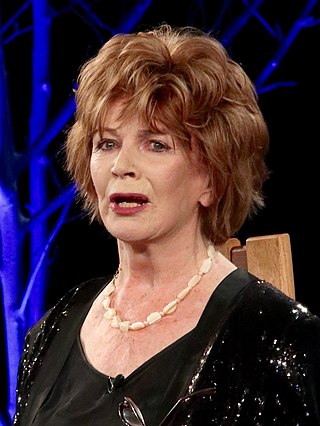
Josephine Edna O'Brien was an Irish novelist, memoirist, playwright, poet, and short-story writer. Elected to Aosdána by her fellow artists, she was honoured with the title Saoi in 2015 and the biennial David Cohen Prize in 2019, whilst France made her a Commandeur de l'Ordre des Arts et des Lettres in 2021.

John Waters is an English-born Australian film, theatre and television actor, singer, guitarist, songwriter, and musician. He is the son of Scottish actor Russell Waters. John Waters has been in the industry for over 50 years, and was part of the Australian children's television series Play School for 18 years.

Richard John Sinclair Laws CBE is an Australian radio announcer. For 50 years, until 2007, he was the host of an Australian morning radio program combining music with interviews, opinion, live advertising readings and listener talkback. His distinctive voice earned him the nickname "the Golden Tonsils". Although officially retired between 2007 and 2011, he returned in February 2011 to host a morning program on 2SM and the Super Radio Network.
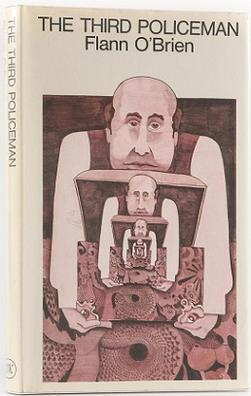
The Third Policeman is a novel by Irish writer Brian O'Nolan, writing under the pseudonym Flann O'Brien. It was written in 1939 and 1940, but after it initially failed to find a publisher, the author withdrew the manuscript from circulation and claimed he had lost it. The book remained unpublished at the time of his death in 1966. It was published by MacGibbon & Kee in 1967.
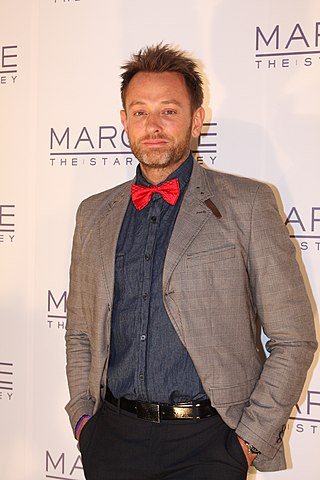
Michael Goldman, is an Australian actor, television and radio host and voice over. He has appeared in television roles, mini-series and films like Young Rock, The Wilds and A Place to Call Home. He is the son of television and radio personality Grant Goldman and weather presenter, former Miss Australian Beach Girl Erica Hammond.
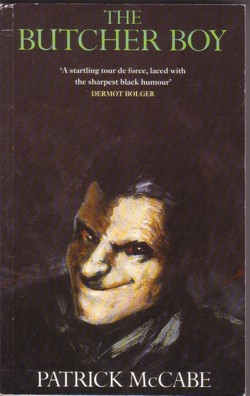
The Butcher Boy is a 1992 novel by Patrick McCabe.
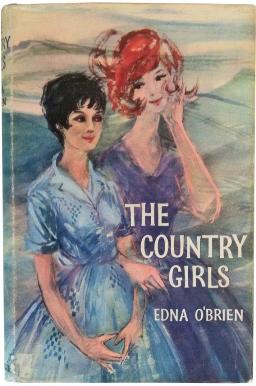
The Country Girls is a trilogy by Irish author Edna O'Brien. It consists of three novels: The Country Girls (1960), The Lonely Girl (1962), and Girls in Their Married Bliss (1964). The trilogy was re-released in 1986 in a single volume with a revised ending to Girls in Their Married Bliss and addition of an epilogue. The Country Girls, both the trilogy and the novel, is often credited with breaking silence on sexual matters and social issues during a repressive period in Ireland following World War II and was adapted into a 1983 film. All three novels were banned by the Irish censorship board and faced significant public disdain in Ireland.
Diana McLean is an Australian stage and television actress and voice over artist, best known for her roles as Sister Vivienne Jeffries in TV soap opera The Young Doctors in 549 episodes from 1978 and 1981.
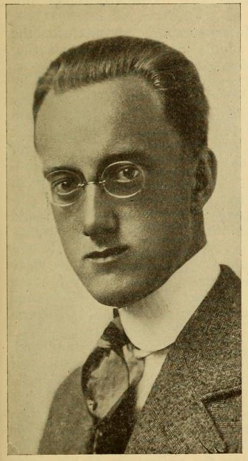
Peter Schmidt, known professionally as Pete Smith, was an American producer and narrator of short subject films.
Emily Maguire is an Australian novelist and journalist.
Orara High School is a government-funded co-educational comprehensive secondary day school, located in Coffs Harbour, in the Mid North Coast region of New South Wales, Australia.
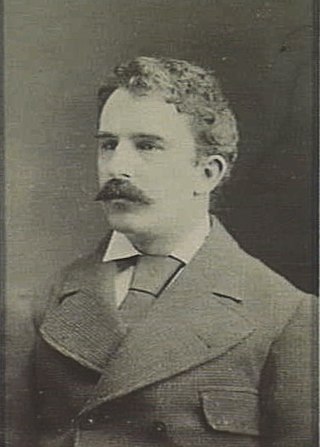
Alfred Dampier was an English-born actor-manager and playwright, active in Australia.

August Is a Wicked Month is the fourth novel by Edna O'Brien. It was published in 1965.
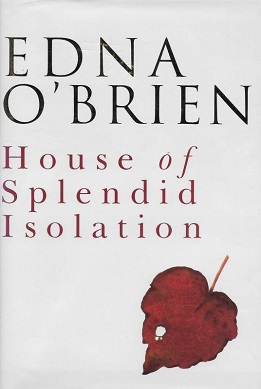
House of Splendid Isolation is a 1994 novel by Irish novelist Edna O'Brien. The novel depicts the relations of an Irish Republican Army terrorist and his hostage, an elderly woman. The novel brings elements of the thriller genre to O'Brien's ongoing explorations of Irish society. It is based on the life of Dominic McGlinchy, whom O'Brien interviewed while incarcerated in Portlaoise Prison.
The New South Wales Amateur Championship is the state amateur golf championship of New South Wales, Australia. It was first played in 1898.
















